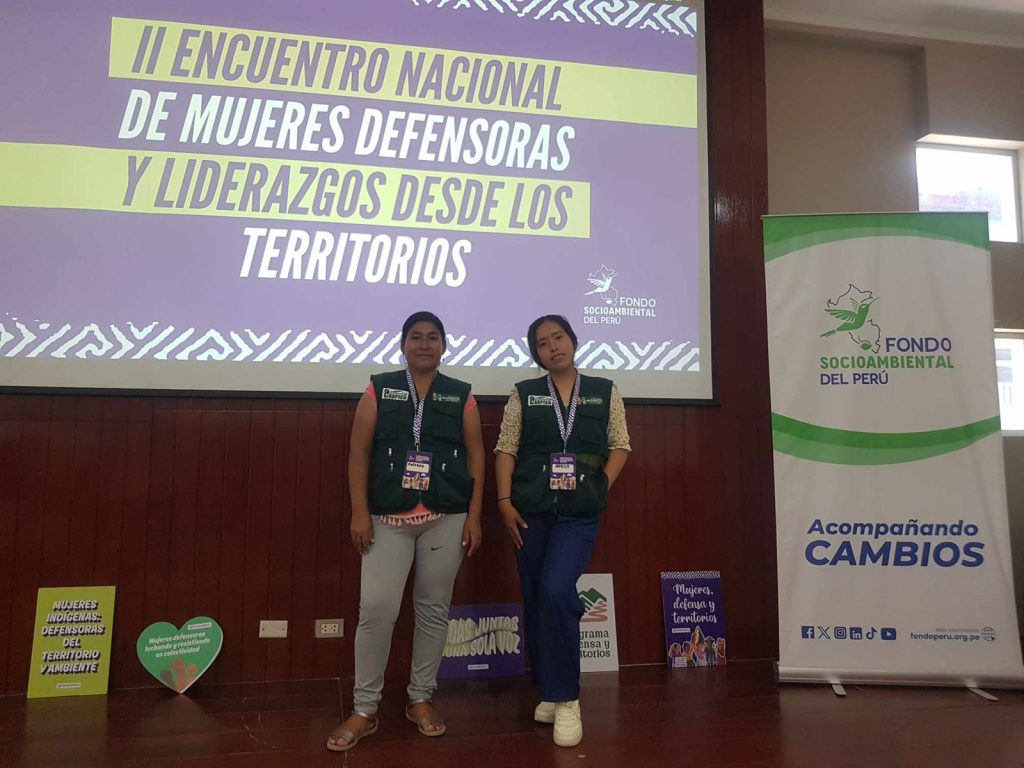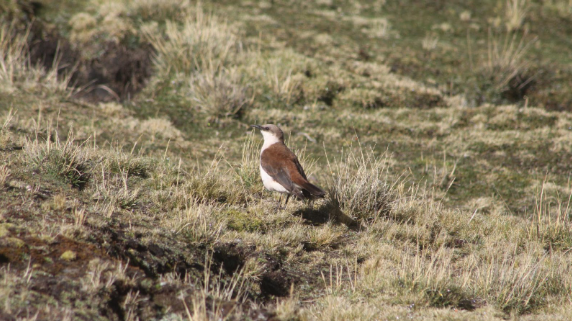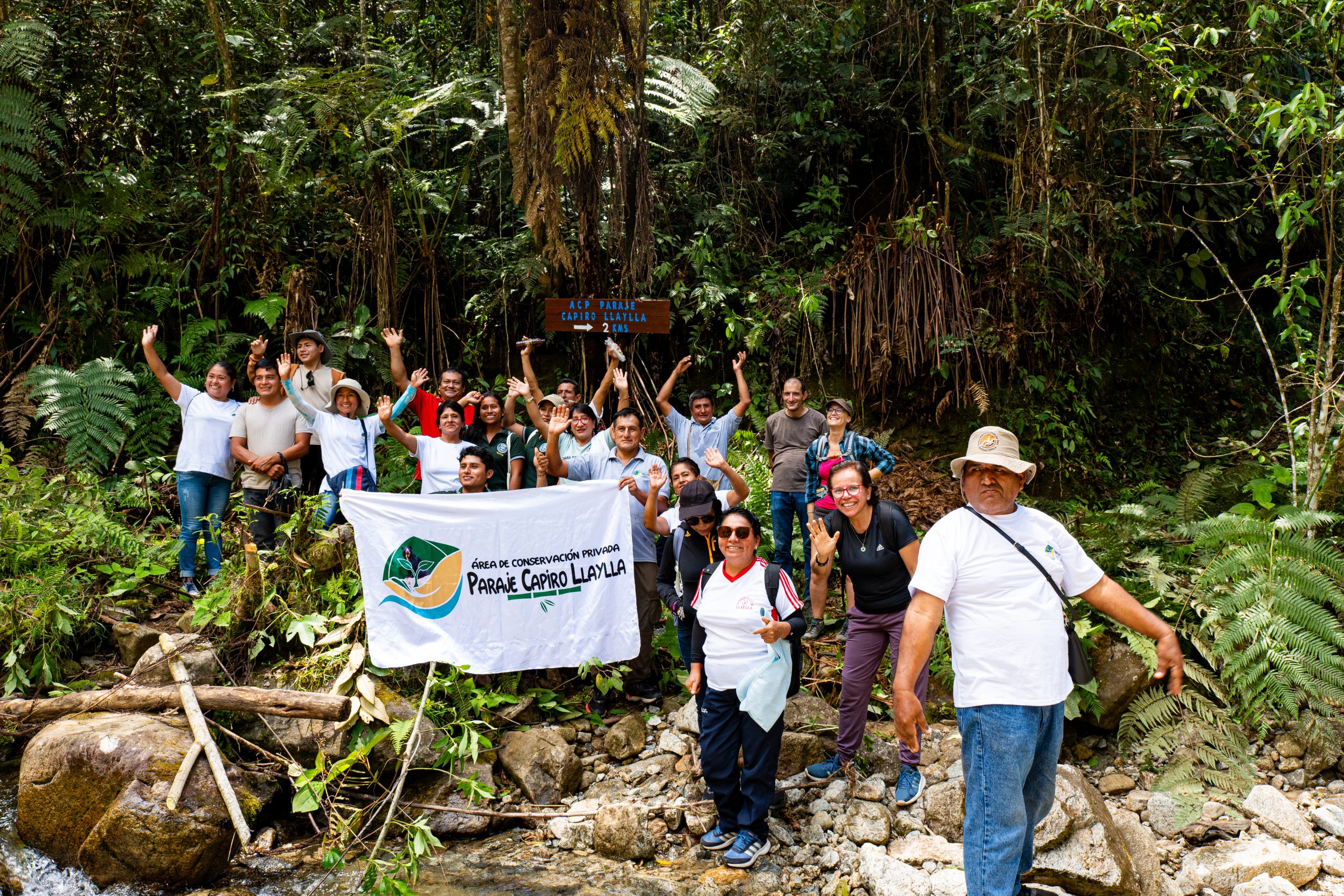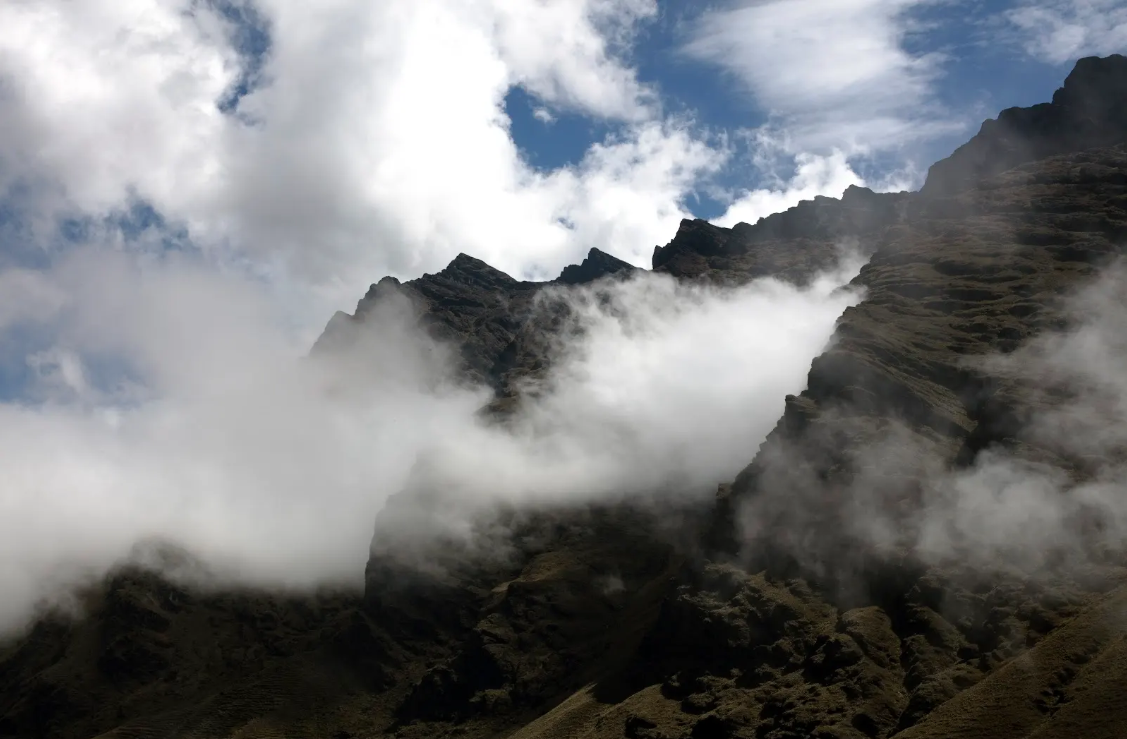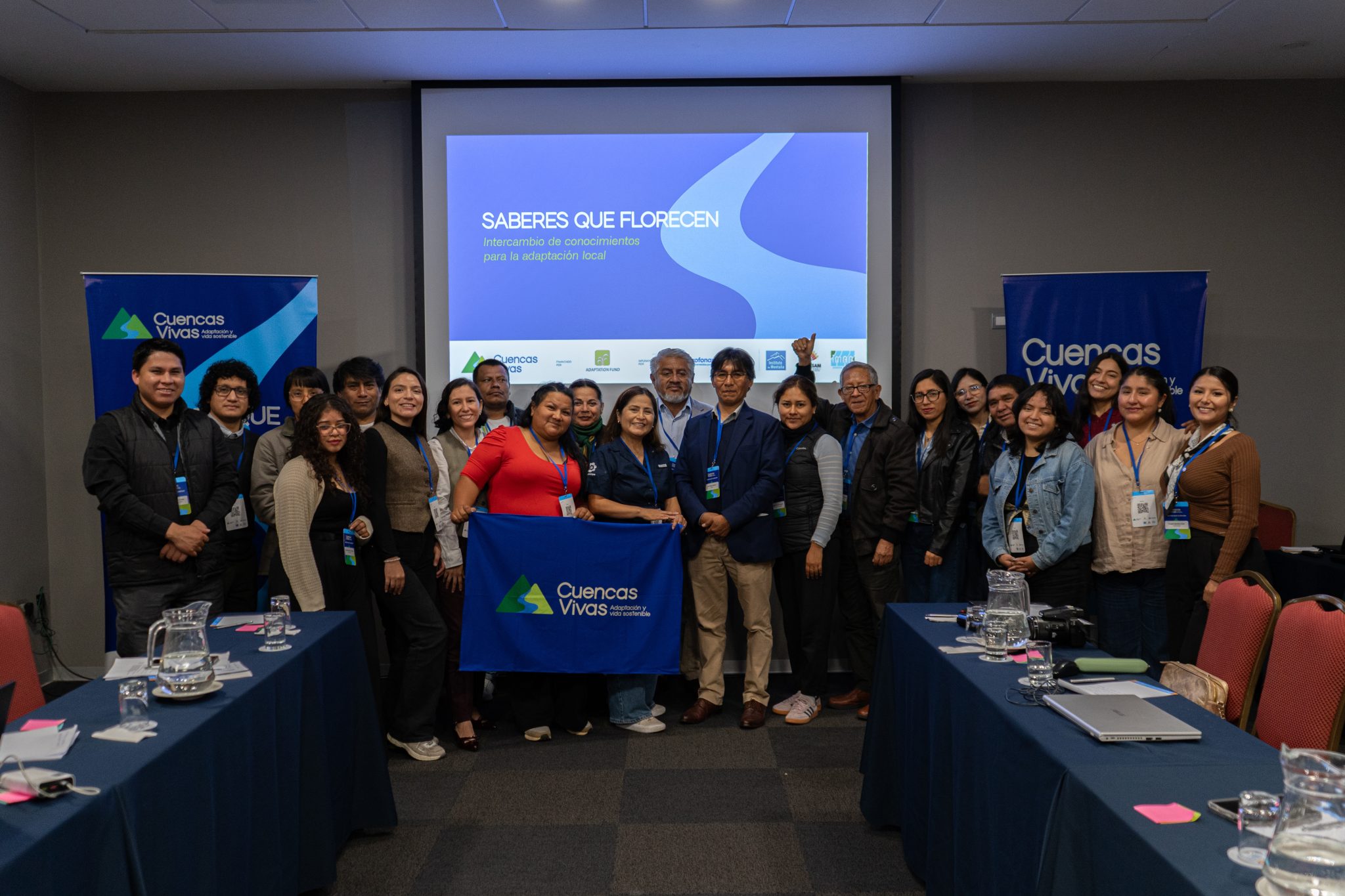Soledad Cuchilla and Adeliz Manzanedo at II National Meeting of Women Human Rights Defenders
Since ancestral times, indigenous peoples have cared for their territories with surveillance and monitoring actions. Today, these practices are strengthened in the Surveillance and Control Committees (SCC), groups of local volunteers who carry out patrols and report threats to protect the forests and their biodiversity.
In the Carpish Montane Forest (CMF) Regional Conservation Area, Soledad Cuchilla Bedolla, treasurer of the SCC, has found in community vigilance a way to restore value to her territory. “I was motivated by the biodiversity of flora and fauna in our watershed and being able to protect them,” she says. Her work has been key to reducing illegal logging and controlling fires, achievements that strengthen her commitment to conservation.
For her part, Adeliz Manzanedo Huayta, a 19-year-old SCC president, follows the example of her father, who always cared for the forest. “I am committed to protecting biodiversity, flora and fauna in Huánuco,” she says. Although she is young, Adeliz feels she has a responsibility to defend her home and her territory, inspiring other young people to join this cause.
The work of these leaders is supported by the Joint Declaration of Intent (JDI), an effort led by the Ministry of the Environment and executed by Profonanpe. This support provides the technical and financial resources that the SCC needs to confront environmental threats and continue its protection work.
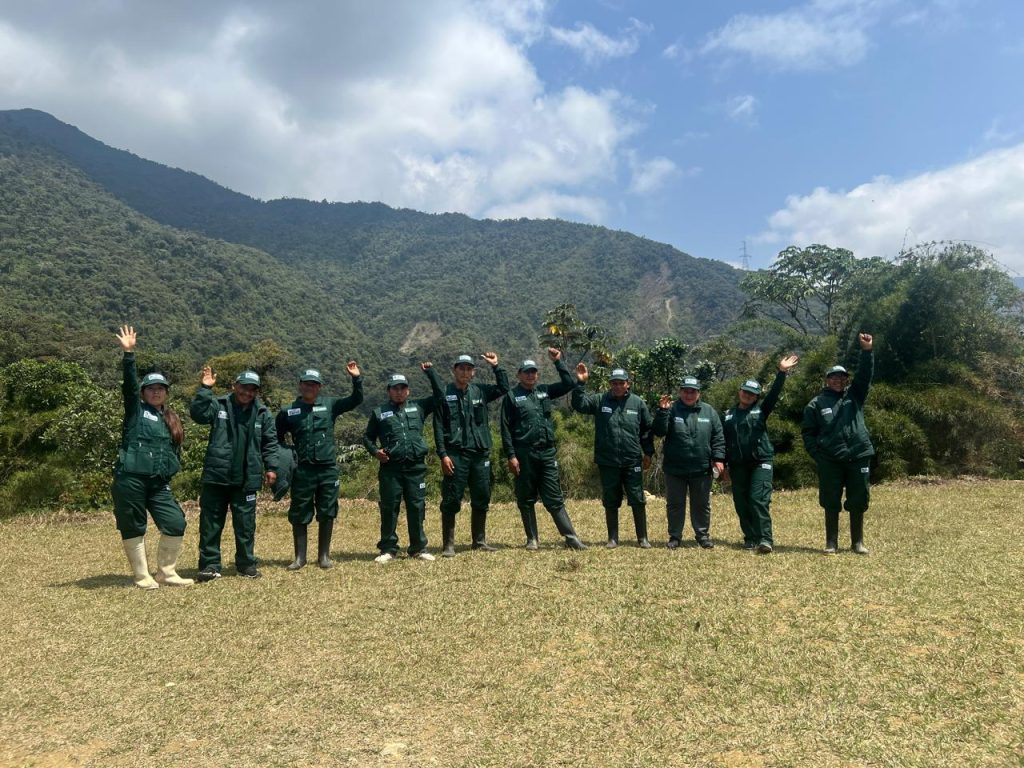
Photo: CMF Control and Surveillance Committee
The role of women in conservation
Soledad stresses the importance of the role of women on the CVC, who, she says, bring a unique vision. “It is not difficult to be part of this committee because we bring skill, knowledge and the power to dialogue with outsiders,” she says with conviction.
For Adeliz, the role of young people in conservation is fundamental. “The elders leave us teachings, but we, as young people, have the knowledge to defend what is ours.” Her participation in a recent meeting of women leaders in Tarapoto has given her tools to strengthen her committee in Huánuco.
Both have a clear message: to protect the territory today is to guarantee a future for the next generations. As Soledad expresses, “We must take care of our natural areas because it is our heritage and the lungs of our land.” Adeliz concludes with a similar reflection, “Nature needs us today, because tomorrow may be too late.”
About the Joint Declaration of Intent (JDI) – Phase 2:
The Joint Declaration of Intent is a voluntary cooperation agreement signed by the governments of Peru, Norway and Germany in 2014 to reduce greenhouse gas emissions from deforestation and forest degradation. In signing this addendum to 2025, the United Kingdom joins the commitment and USAID as an observer.
The ICD is led by the Ministry of Environment and executed by Profonanpe, with the participation of the Ministry of Agrarian Development and Irrigation, through SERFOR; the Ministry of Economy and Finance; the Ministry of Culture; the regional governments of San Martin, Huanuco, Ucayali, Loreto, Amazonas and Madre de Dios; and the indigenous organizations AIDESEP, CONAP and ANECAP. It is also financed by the Norwegian Agency for Development Cooperation – NORAD.


